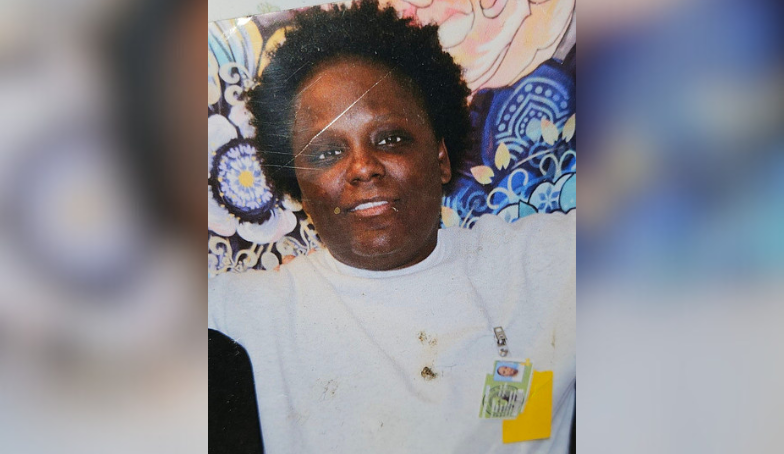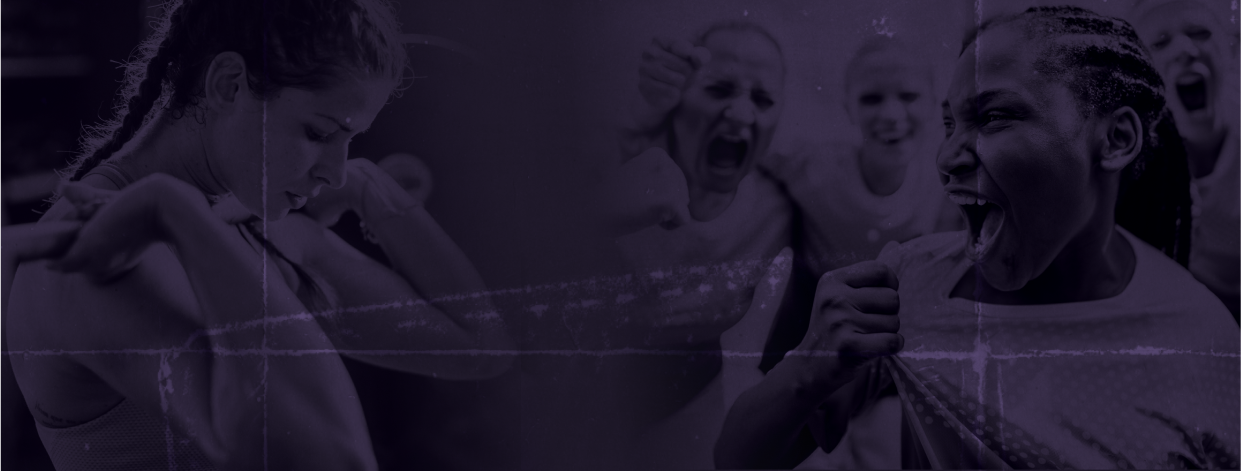Produced By: Kelsey Bolar and Andrea Mew
Written By: Andrea Mew
After a first-degree murder conviction in 2018, Washington state inmate Crystal Jackson said she was “totally crumbling on the inside” when she first entered prison. However, at her lowest point, one major life change helped her become a productive and nonviolent inmate—practicing Islam.
However, because the Washington State Department of Corrections (DOC) adopted policies that allow males who self-identify as women to access women’s prisons, Jackson said she’s now unable to practice her faith authentically.
From behind bars, Jackson spoke with IW Features about her experience being incarcerated with males at the Washington Corrections Center for Women (WCCW) and explained how radical gender ideology has upended her ability to follow the Muslim faith and heal.
Jackson was sentenced to 26 years on a first-degree murder plea. She initially struggled with being away from her five children and losing a few family members and close friends, so she turned to faith to practice a healthier approach to life.
But in 2020, after Washington state began allowing males to live inside her facility, and after a couple of encounters with men in the bathroom, Jackson said she now feels forced to pick and choose when she can authentically practice her Muslim faith.
In 2021, Jackson was allegedly using the restroom alone, wearing her hijab like normal, when a “six-foot-something-plus” man stood next to her and washed his scrotum area, making eye contact with her in the mirror.
According to the Koran, Muslim men and women must follow specific modesty guidelines, one of which emphasizes that it is only permissible for men to see a woman undressed if they are married or a close family member. In all other contexts, Muslim women must follow rules of modesty and veiling, avoiding all situations where men could see them in an immodest state.
“Here I am, practicing a religion that speaks so highly and fluently of the preparation and the teachings that one must follow in order to be fully converted,” Jackson said. “I never forgot that—how I felt unvalidated and invaluable in my approach to my own faith.”
Jackson then filed a resolution request (also known as a grievance) to call attention to the fact that the transgender policy violates Muslim women’s faith and prevents them from living according to their religious beliefs. Islam, she said, is a “very strict religion” when it comes to sex segregation, but its teachings helped her move on from her past lifestyle that landed her in prison.
Now, however, she is being prevented from putting them into practice.
“At a time where I was broken and found the closure and peace that I needed in my religion, it was pretty much taken from me,” Jackson said.
When asked for comment, Washington State’s Department of Corrections declined to say whether Jackson and other practicing Muslim women were able to exercise their religious beliefs and instead redirected IW Features to its transgender policy.
As of 2024, WCCW houses an estimated 11 male inmates who self-identify as women.
But the transgender community inside the prison, she said, is “kind of like a gang,” and many of the women at WCCW—even practicing Muslims—have resigned themselves to the reality that men are now a part of their population and that there’s nothing they can do about it.
Making matters worse, most of the men have never tried to pretend they are anything but. They might have claimed to identify as women in court proceedings; they might even have taken on new female names. But once the men arrived at WCCW, Jackson said, “Everything… that they said to get here had gone out the window.” For instance, one of the men Jackson met, who was over six feet tall, would only act like a woman when staff was around.
According to Jackson, some have nefarious intentions.
“A lot of them were saying, ‘I came here to see how much sex I can get from a woman,’ or ‘I would rather be here versus being in the men’s prison because I was being raped there,’” she said. “But then they come here and prey on the women here. People used it for their personal gain.”
The presence of men has caused Jackson to become “very paranoid” and “very fearful.” She said for the men, it’s a “win-win situation,” but for the women, it’s “lose-lose” because they are not only forced to accept males in their prison, but feel they can’t speak out about it, either.
Through the Cruel & Unusual Punishment documentary series, IW Features has documented the voices of many other current and former female inmates who have faced retaliation and felt their voices have been repressed, including Alissa Kamholz, Jennifer Barela, and Cathleen Quinn. While some women have boldly spoken out anyway and even joined litigation against these policies, the fear of retaliation is real.
“You don’t always want to be the only sheep in the pack to just throw yourself out there to be sacrificed when everyone else is conforming,” Jackson said. “You pretty much open yourself up to retaliation in many more forms than one.”
Even prison staff members have felt pressured to remain silent about their concerns, Jackson said. Many agree that male integration in a female prison is wrong, but Jackson added they are worried they’ll lose their jobs if they try to push back.
“They told us, ‘The power is in your hands,’” Jackson said.
For some time, Jackson said she wasn’t ready to make noise, but as she became stronger in her faith, she got to a point where she stopped being scared to speak out.
“We’re just fed up. We’re fed up, and we’re ready for change,” she said.
That change may be coming soon. In July 2024, the Foundation Against Intolerance & Racism (FAIR) launched an advocacy campaign to protect women such as Jackson and urged the Washington State Department of Corrections to uphold women’s sex-based rights, including the right to live according to their religious beliefs.
If the DOC does not make a “timely and adequate” effort to remedy the physical and emotional harm that women such as Jackson have documented, FAIR said it is prepared to take legal action to ensure equal protection of female prisoners and their rights.
“No one should have to … pick and choose when they’re going to apply the religion that they’re practicing,” Jackson said. “I don’t really care about the backlash … because what’s going on in the institution has [gone on long] enough, and we’re actually advocating and coming together to fight for once.”









